Resilient File System (ReFS) was first introduced by Microsoft Corporation in the release of Microsoft Server 2012. Since then support of this file system has been integrated into Microsoft server and desktop operating systems like Windows 8/8.1, Windows 10, Server 2016 (Technical Preview).
ReFS was designed with one key goal in mind – file system integrity and the ability to verify and auto-correct data without need to run a separate file system checking utility.
To provide better NTFS file system compatibility for existing applications, Microsoft is using the same API for implementing file system semantics: “This code implements the file system interface (read, write, open, close, change notification, etc.), maintains in-memory file and volume state, enforces security, and maintains memory caching and synchronization for file data. This reuse ensures a high degree of compatibility with the features of NTFS that we’re carrying forward”.
Unfortunately even with the upper-layer engine nearly identical to what’s found in NTFS, up until now, only Microsoft platforms provided access to ReFS volumes; as a result, a Windows PC or a virtual machine running a supported Windows operating system would still be required to open files on Refs volumes from other platforms such as Linux, Mac, etc.
Paragon Software’s development team has been working on integrating ReFS file system support into our UFSD (Universal File System Driver) technology since 2012. We are happy to announce the present result of this work and release a Paragon UFSD driver that supports working with Refs volumes in read-only mode (full solution with both read and write support is under active development).
Introduction to the Paragon ReFS Universal File System Driver
1. Create a ReFS volume on Windows Server 2012 platform:
2. Mount a ReFS volume on Linux:
3. Copy data from ReFS on Linux:
As you can see, with the help of the Paragon ReFS driver anyone can make a copy of their data from the ReFS volume on a Linux platform, without need for a Windows PC.
ReFS Compatibility within the Microsoft Ecosystem
With the release of Microsoft Server 2016 Technical Preview versions, Microsoft has shown that it continues to develop the ReFS file system. The newest ReFS version implemented into the Server 2016 Technical Preview 5 revision is not currently compatible with the previous Microsoft platforms, like Windows Server 2012 R2.
Attaching a ReFS volume from Windows Server 2012 to Windows Server 2016 (Technical Preview 5) – the ReFS volume is recognized:
ReFS is now ready for your Read-Only workloads. If you want to to take advantage of this new technology, please contact Paragon’s sales team at sales@paragon-software.com.
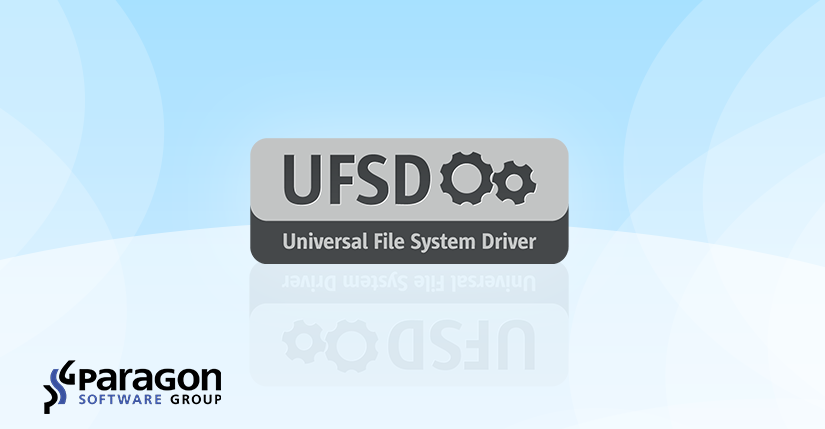
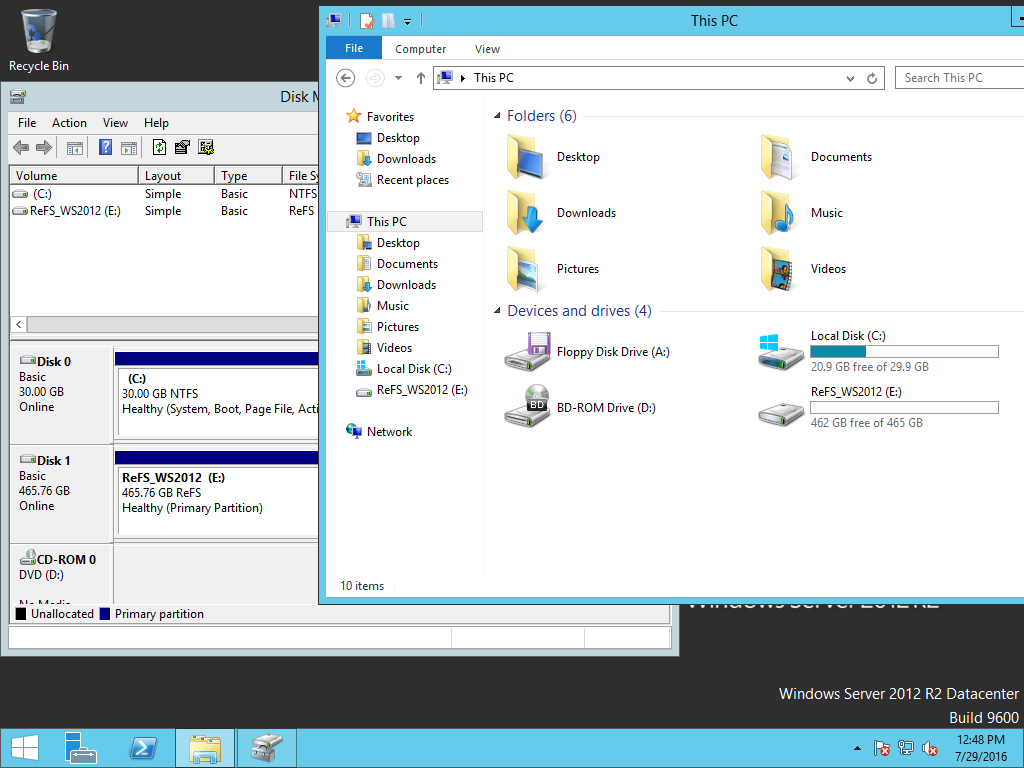
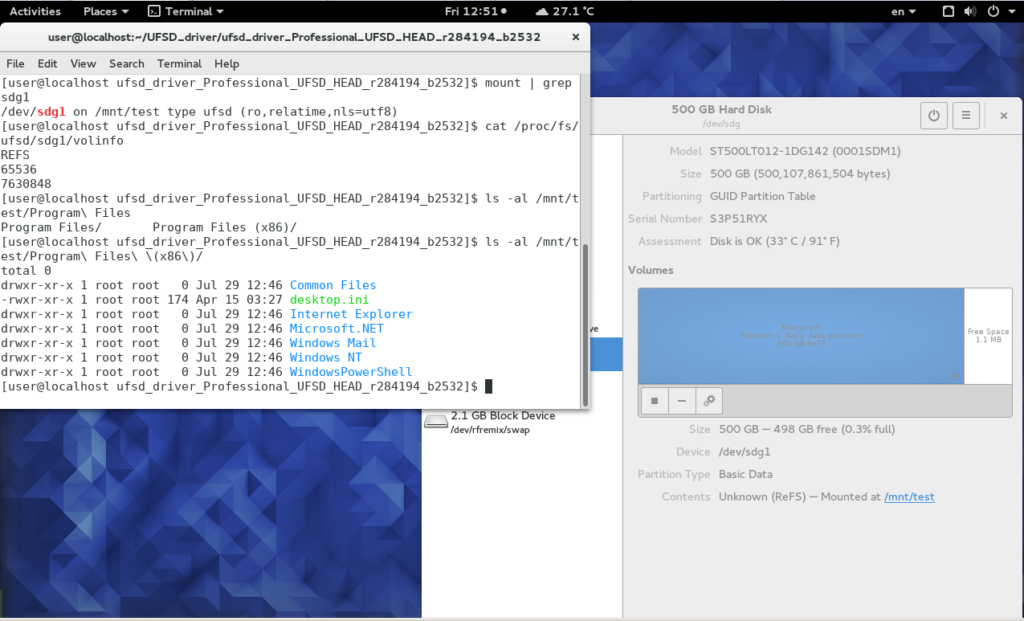
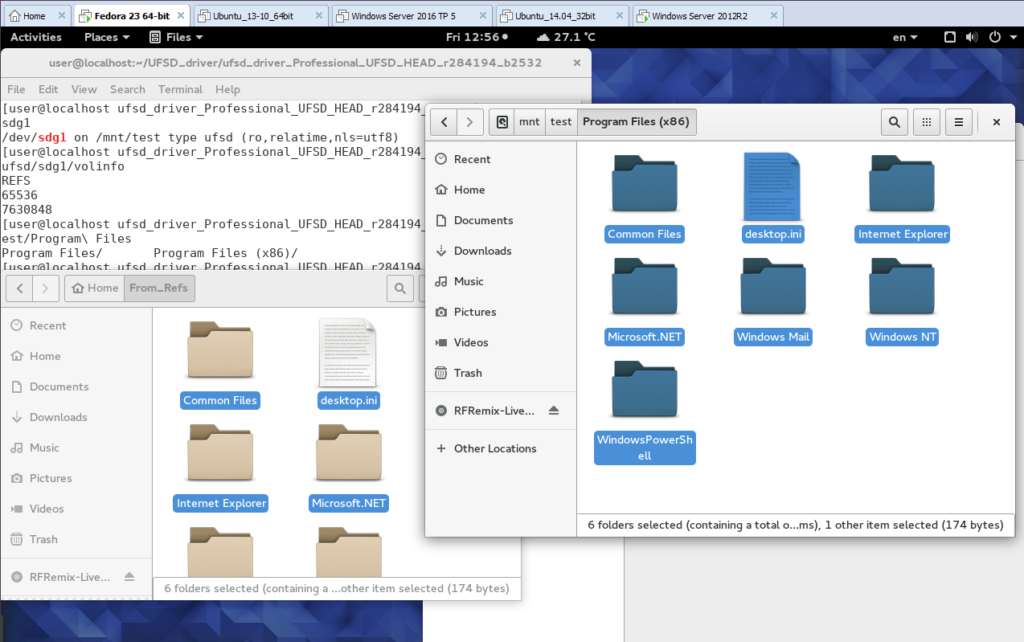
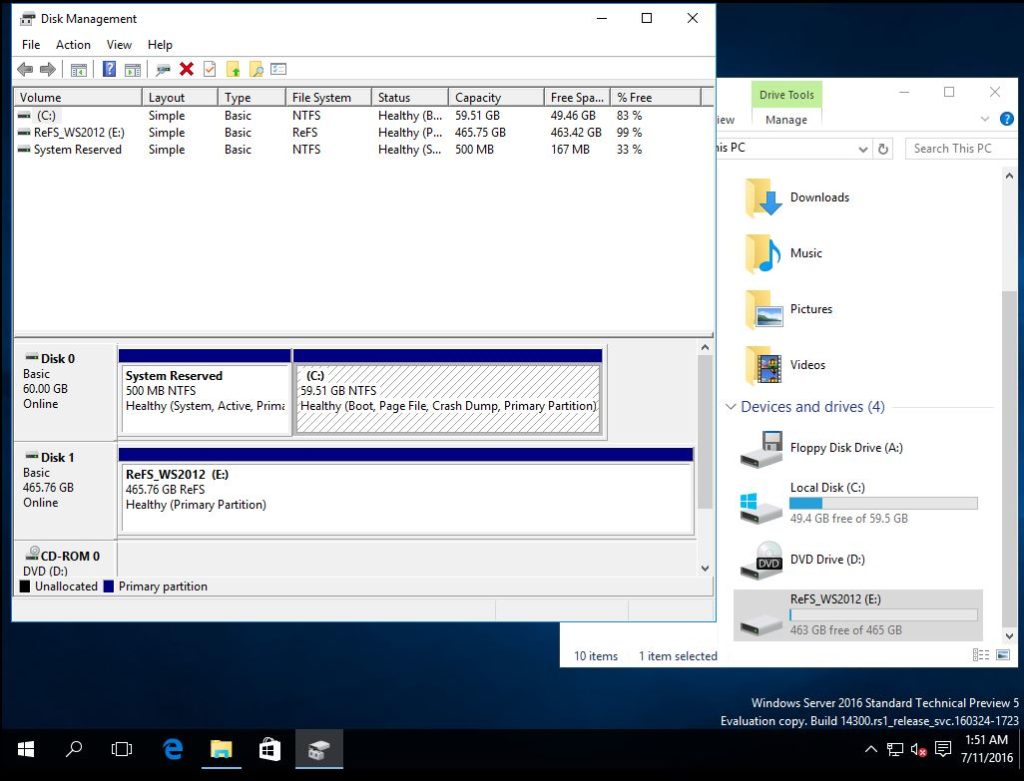
Nice Article. In short description good explanation about the DevOps. Thanks For sharing the informative news.
With ReFS Creation support being removed in the 1709 update, is there any chance that you can bring said functionality back in forthcoming Read/Write edition?
Come to think of it, a standalone “ReFS Formatter” utility would justify the cost of the UFSD pack when compared to a full Windows 10 Pro Workstation/Enterprise upgrade. Blast down the basic empty filesystem, and let Windows do its work. Feature Request! 🙂
Dear Thomas,
Please fill out a request form at http://www.paragon-software.com/contact.html with the according information and our sales department will get in contact with you to discuss this matter! ?